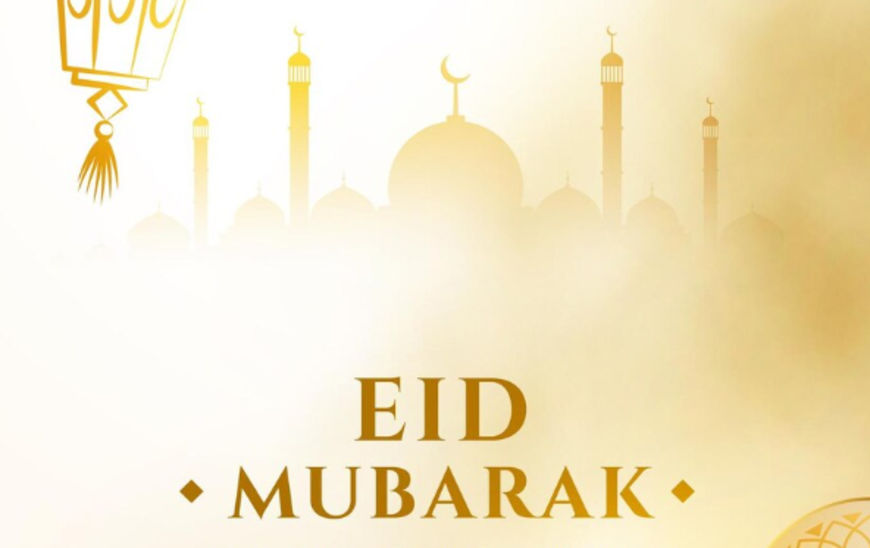
Eid-ul-Adha, also known as the Festival of Sacrifice, is one of the most significant Islamic celebrations observed by Muslims worldwide. It commemorates the ultimate act of devotion by Prophet Ibrahim (Abraham), who was willing to sacrifice his son, Ismail (Ishmael), as a command from Allah. However, Allah, in His mercy, provided a ram as a substitute, marking the beginning of the tradition of Qurbani (sacrifice).
Eid-ul-Adha is not only a time for sacrifice but also a period of spiritual reflection, prayer, and generosity. The festival is celebrated with grand prayers, the sacrifice of animals, sharing meals, and giving to the less fortunate. It is closely associated with Hajj, the annual Islamic pilgrimage to Mecca, making it a deeply meaningful event for Muslims.
Since the Islamic calendar follows the lunar system, the dates of Eid-ul-Adha vary each year based on the sighting of the moon. Let’s explore when this festival falls in 2025 and its religious significance.
When is Eid-ul-Adha 2025?
In 2025, Eid-ul-Adha is expected to be observed on Sunday, June 8, 2025. However, the exact date may vary depending on the sighting of the Dhul-Hijjah moon, the twelfth month of the Islamic calendar.
How the Date is Determined
Eid-ul-Adha falls on the 10th day of Dhul-Hijjah, following the completion of Hajj. Since the Islamic calendar is lunar-based, it is about 10–12 days shorter than the Gregorian calendar, causing the dates to shift each year. Islamic scholars and moon-sighting committees in various countries determine the exact date of Eid-ul-Adha based on the new moon’s appearance.
Regional Differences in Observance
Due to the different time zones and moon-sighting methods, some countries may observe Eid al-Adha on different days. While many Islamic nations rely on Saudi Arabia’s moon sighting, others follow their local moon-sighting traditions. This slight variation means that in some regions, the festival may fall a day later.
What is Eid-ul-Adha?
The Story of Prophet Ibrahim and the Sacrifice
The origins of Eid-ul-Adha trace back to Prophet Ibrahim’s unwavering faith in Allah. According to Islamic teachings, Ibrahim saw a dream in which Allah commanded him to sacrifice his beloved son, Ismail. Despite the emotional difficulty, Ibrahim submitted to Allah’s will and prepared to carry out the command.
However, before the sacrifice could take place, Allah intervened and replaced Ismail with a ram, symbolizing divine mercy and the importance of obedience and devotion. This event is honored through the ritual of Qurbani, where Muslims sacrifice livestock in remembrance of Ibrahim’s faith.
Connection to Hajj
Eid-ul-Adha is intrinsically linked to Hajj, the annual pilgrimage to Mecca, which takes place in Dhul-Hijjah. The completion of Hajj rituals, including standing at Arafat, Tawaf (circling the Kaaba), and performing Qurbani, culminates in Eid celebrations, making it a highly revered occasion.
How is Eid-ul-Adha Celebrated?
- Eid Prayer (Salah al-Eid)
The day begins with a special congregational prayer known as Salah al-Eid. This prayer is performed in mosques, open prayer grounds, or community centers and includes:- A special sermon (khutbah) reminding Muslims of the significance of Eid-ul-Adha and the values of sacrifice, unity, and charity.
- Recitation of Takbir (praising Allah): “Allahu Akbar, Allahu Akbar, La Ilaha Illa Allah, Allahu Akbar, Allahu Akbar, wa Lillahil Hamd.”
- Qurbani (Animal Sacrifice)
One of the central aspects of Eid-ul-Adha is Qurbani, the act of sacrificing an animal to symbolize Prophet Ibrahim’s devotion.- Eligible animals include sheep, goats, cows, or camels.
- The meat from the sacrifice is distributed as follows:
- One-third for the family.
- One-third for relatives and friends.
- One-third for the poor and needy.
- Qurbani must be performed ethically and in accordance with Islamic guidelines.
- Charity and Helping Others
The festival emphasizes the importance of generosity and compassion:- Muslims are encouraged to give monetary donations and food to the less fortunate.
- Acts of kindness, such as volunteering and helping neighbors, are highly valued.
- Many organizations run Qurbani donation programs to ensure meat reaches impoverished communities worldwide.
- Festive Meals and Gatherings
Eid-ul-Adha is a time for joyous family gatherings and feasting on delicious meals:- Popular dishes vary by region but often include grilled meats, biryani, kebabs, and sweet treats like baklava and sheer khurma.
- Families host relatives and friends, strengthening bonds and fostering a sense of community.
- It is also a time to visit graves of loved ones, offering prayers for their souls.
- Wearing New or Best Clothes
Following the Sunnah (tradition) of Prophet Muhammad, Muslims dress in their finest attire:- Men and women wear modest and elegant outfits, often reflecting cultural diversity.
- Perfumes and fragrances are applied as part of the Eid tradition.
- In some cultures, gifts and money (Eidi) are exchanged among family members, especially children.
Amber Prayer Beads and Their Significance During Eid-ul-Adha
Importance of Dhikr (Remembrance of Allah)
Eid-ul-Adha is a time for spiritual reflection and remembrance (dhikr). Muslims frequently recite Takbir, Tahmid (praising Allah), and Tasbih (glorifying Allah) throughout the festival.
Use of Amber Prayer Beads (Tasbih)
Amber prayer beads, or Tasbih, hold a special place in Islamic traditions. They are used for counting dhikr and supplications, enhancing the mindfulness and devotion of the believer.
Natural amber beads are believed to have healing properties and bring a sense of tranquility during prayers.
They symbolize purity, warmth, and faith, making them a meaningful accessory during Eid celebrations.
Eid-ul-Adha is a festival of faith, sacrifice, and generosity that unites Muslims globally in devotion and gratitude. It reminds us of Prophet Ibrahim’s unwavering obedience to Allah and encourages compassion, sharing, and helping those in need.
As Eid-ul-Adha 2025 approaches, let us embrace its true spirit by engaging in prayers, charity, and acts of kindness. May this Eid bring peace, joy, and blessings to all. Eid Mubarak!
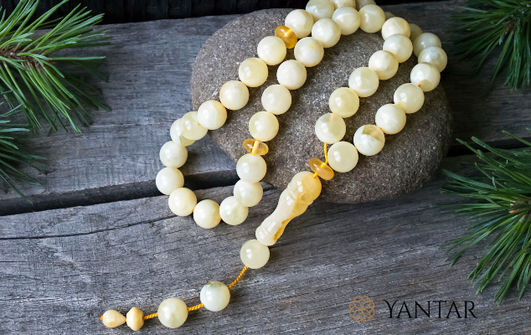
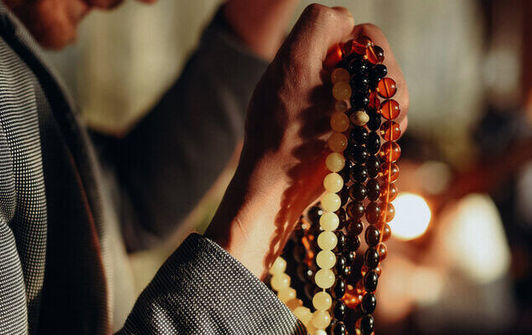


 Jewelry
Jewelry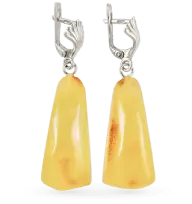 Silver amber jewelry
Silver amber jewelry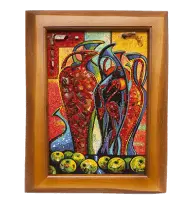 Amber pictures
Amber pictures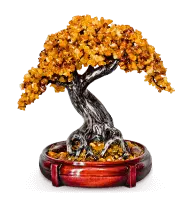 Souvenirs
Souvenirs